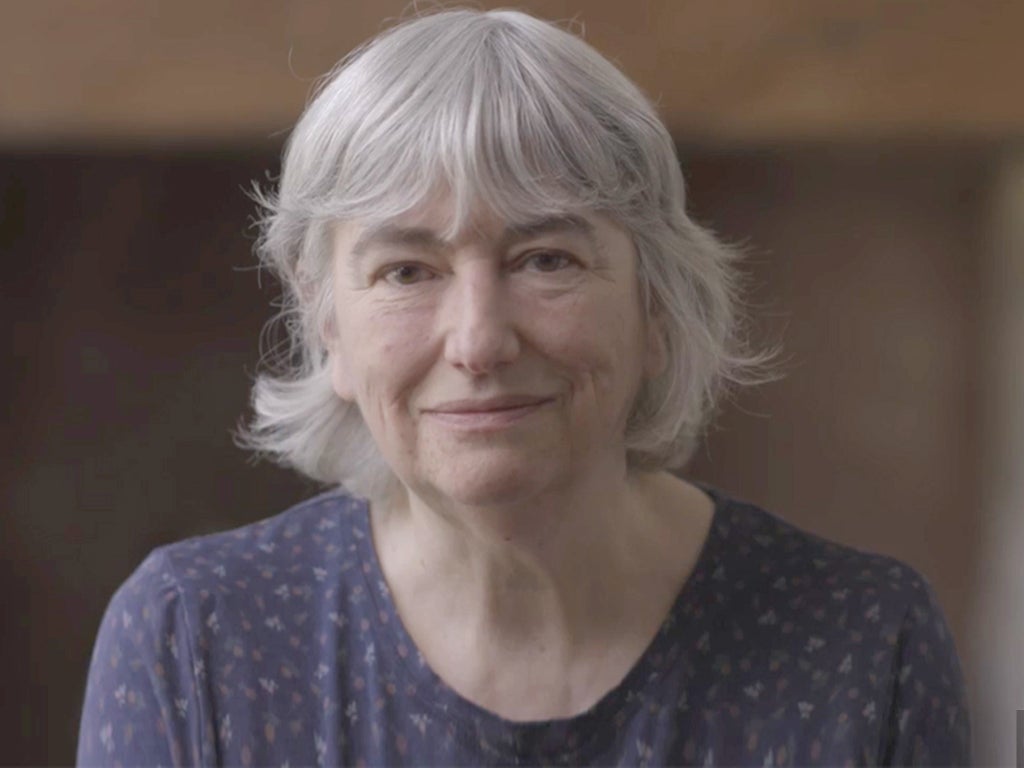
A retired teacher who built a “perfect life” with her soul mate says their love gives her the strength to carry on as she faces the heartbreaking reality that her husband, daughter and son have inherited an incurable and degenerative brain disease.
Before Alison Holland, 64, married fellow teacher Bert Holland, 69, in 1982, he told her parents that he could trace the genetic condition Huntington’s disease (HD) back to his great grandmother’s generation, but that his father had escaped it, meaning he and any children he had would be fine.
Impressed by his candour, Alison, of Gloucestershire, happily tied the-knot and they had two children, daughter Elise, 36, and musician son David, 39, thinking they had escaped the “curse.”
Sadly, both Bert and Elise now live with the cruel condition, while David, who is asymptomatic, carries the gene, according to Alison, who said: “We would never have had the children if we had known we would put them at risk of a genetic disease.”
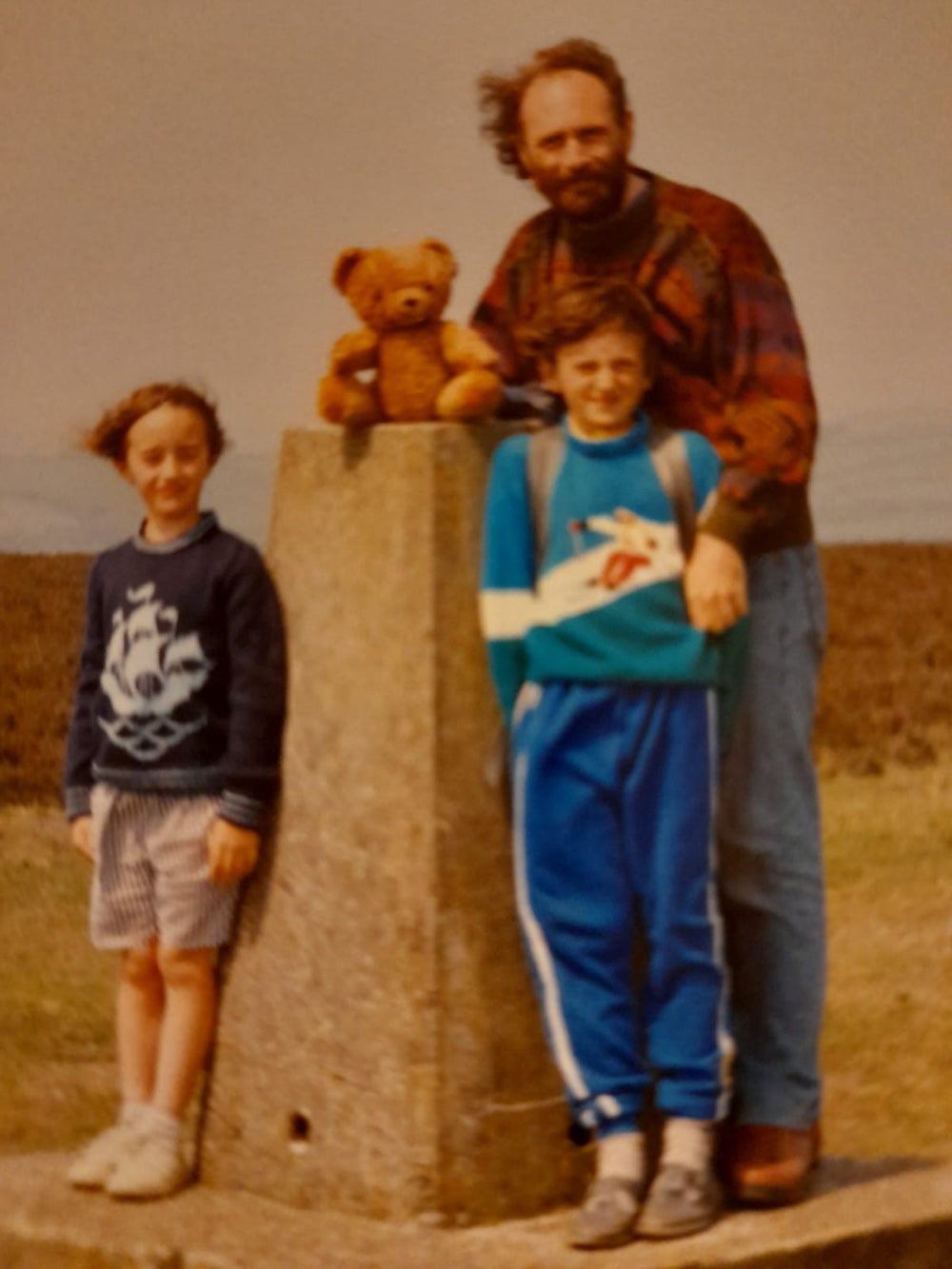
When Alison and Bert met as “dreamy” students at Sunderland Polytechnic in Tyne and Wear in 1977, they soon fell in love – moving into a rented cottage in Shropshire, where they began teaching.
The first time Alison ever heard about Huntington’s was when Bert sat in her parent’s living room, just months before they were married, and told them all about his family’s medical history.
Unlike many families, he could trace the disease back through the generations.
Alison said: “It goes back to Victorian times with Bert’s great grandmother, Adelaide, who became pregnant. Whoever the dad was is where the Huntington’s disease came into the family, because it passed onto their daughter, Bert’s grandmother, Minnie Gladys, who then passed it onto her son, his dad.”
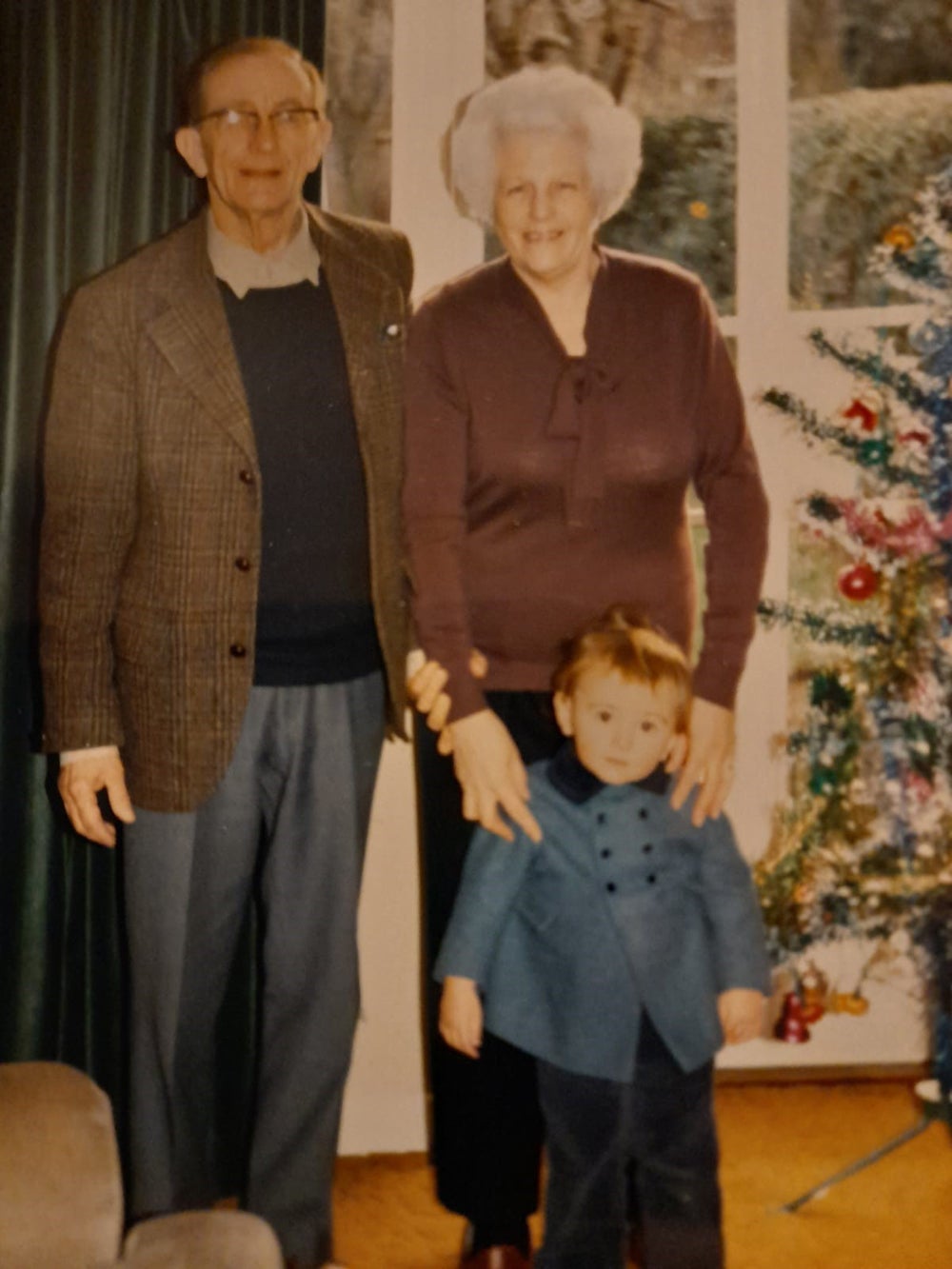
She added: “Bert explained to me and my parents that there was this condition in the family, but everything was fine, because that is what his mum and dad had told him.
“When his parents had gone to the doctor, they were told that if his dad hadn’t got the disease by then, then he definitely wasn’t going to get it.
“Back then, you didn’t have Google, you just accepted what your doctor told you.
“My mum and dad didn’t flinch and I just thought, ‘Oh, how kind. He is doing the honourable thing of letting us know.’ But we believed there was absolutely nothing to worry about.”
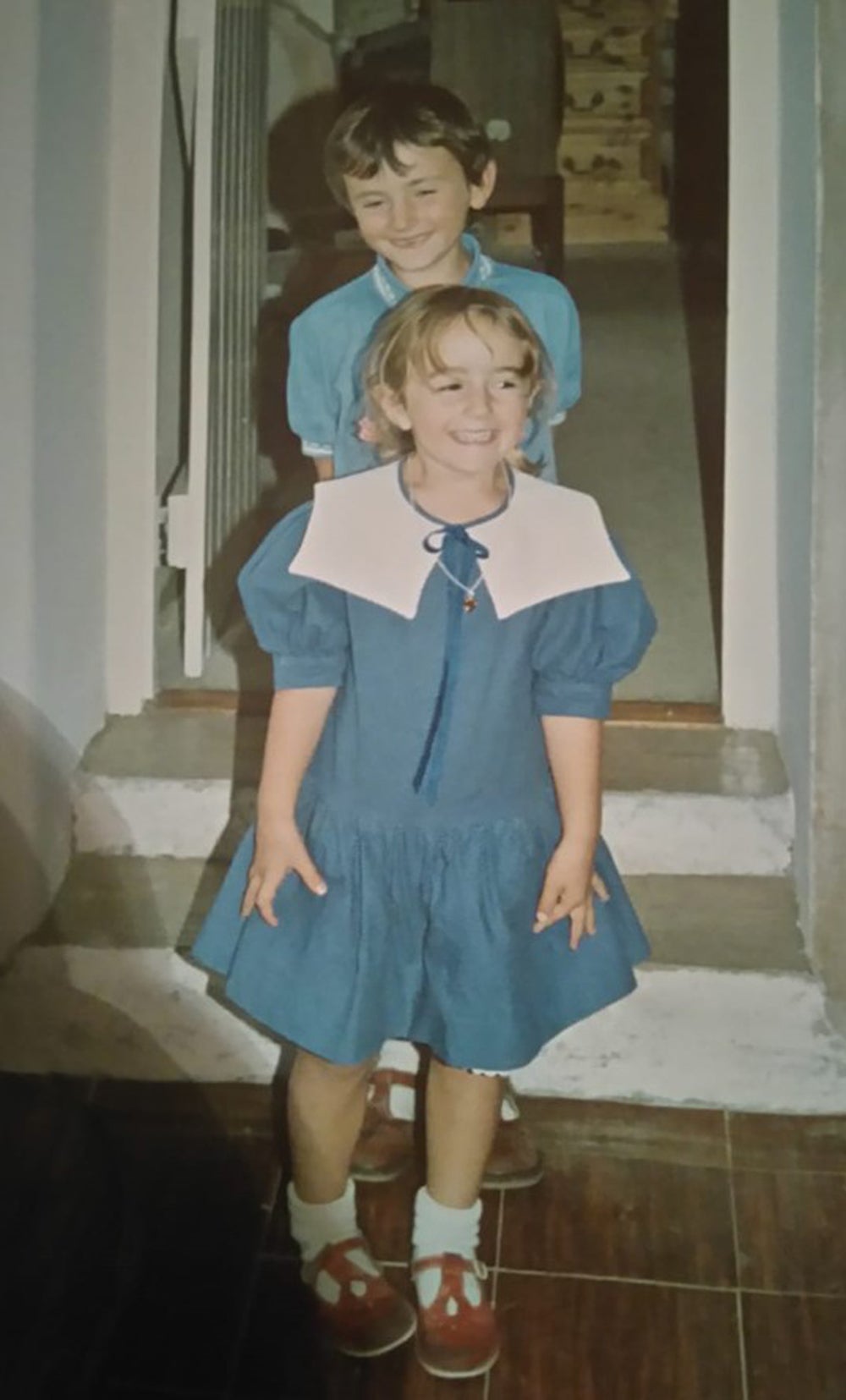
Enjoying a blissfully happy marriage, the couple then had David in January 1983 and Elise in August 1985, making their family complete.
But a year later, a trip to visit Bert’s parents changed their lives forever.
Alison said: “Bert was driving to his parents’ house to collect their car, because ours was playing up and his father was going to stop driving.
“I remember him saying on that day that our life was perfect – we struggled a little with money, but we were in love and we had two gorgeous children.”
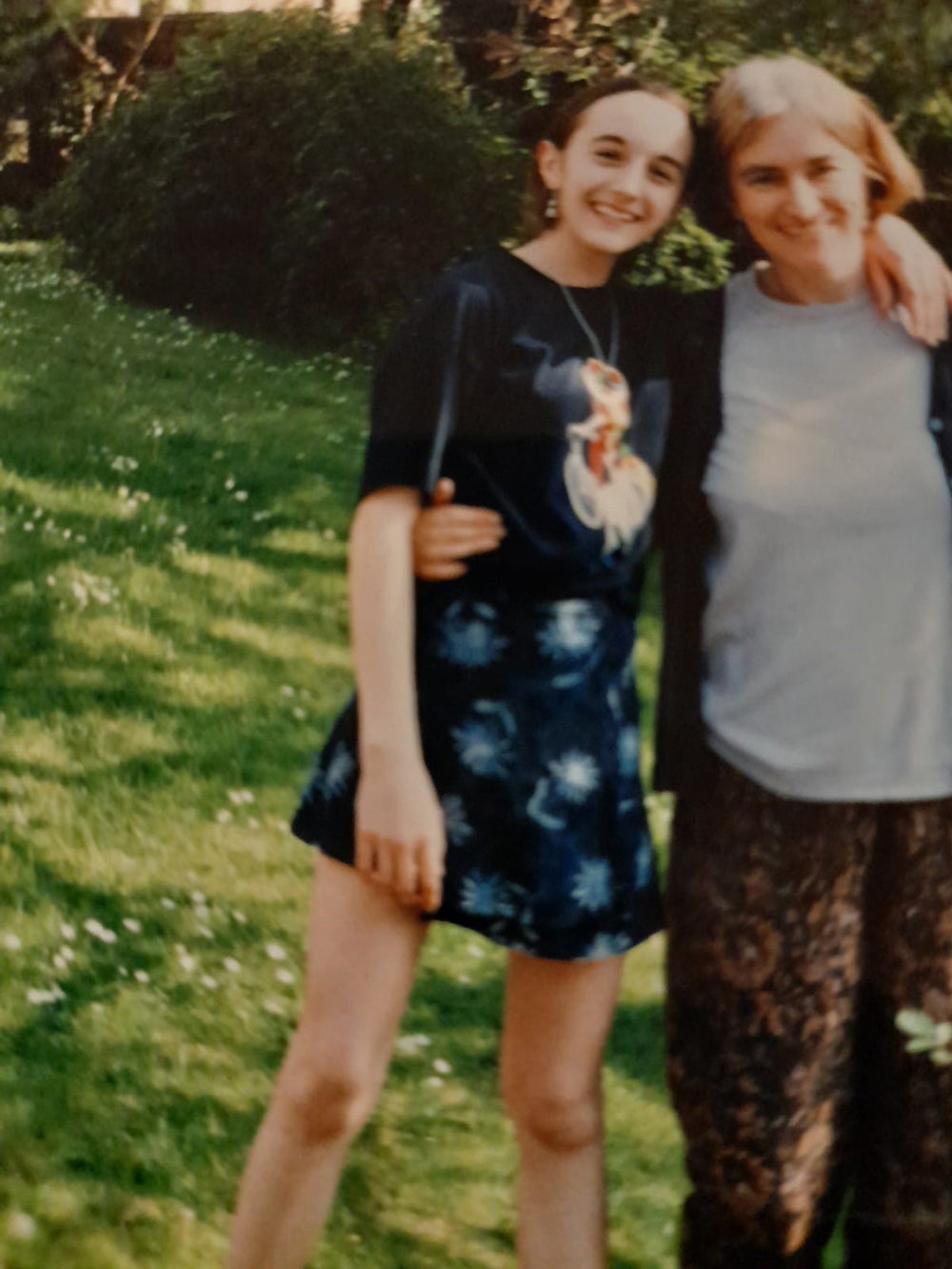
She added: “But when Bert came back home later that day, he looked shattered.
“His dad had become a bit more muddled and forgetful, so they had seen the doctor and they said he had Huntington’s after all.
“Bert was devastated. I wanted to reassure him that we were going to be all right and would get through it, but it was devastating.”
With two children under three and no way of knowing if he carried the gene or not, as there was no definitive test at that point, Alison and Bert did their best to park the terrifying news and vowed to enjoy life.
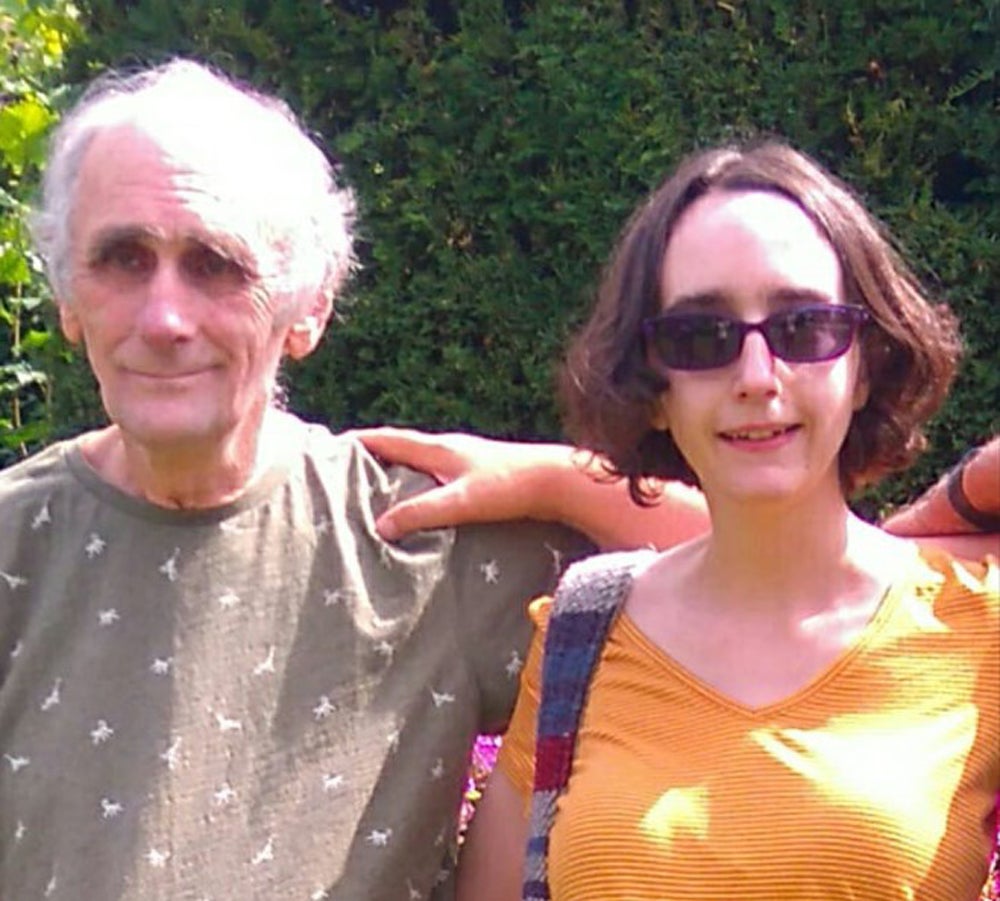
She said: “We decided the best thing to do was to go on as normal, because there wasn’t much else we could do.
“We thought there was no point ruining our lives for something that might not actually happen.
“I had to get on with being a happy mum to two little children.”
His father’s 1986 diagnosis meant that Bert had a 50/50 chance of having HD, while both their children had a 25 per cent risk.
I feel like I am living a life in parallel.
While doing their best to live a happy life, their fears for Bert were confirmed in 2015 and, devastatingly, just a few years later, Elise, then a budding textile designer, also began to show signs of the condition.
While their son, David, has since discovered he carries the gene, he has no symptoms.
But a dark cloud looms over them all, as HD currently has no cure and causes the progressive breakdown of nerve cells in the brain, impacting on functional abilities and causing everything from tics to cognitive and psychiatric disorders.
“I feel like I am living a life in parallel,” Alison, who lives with Bert and Elise, said.
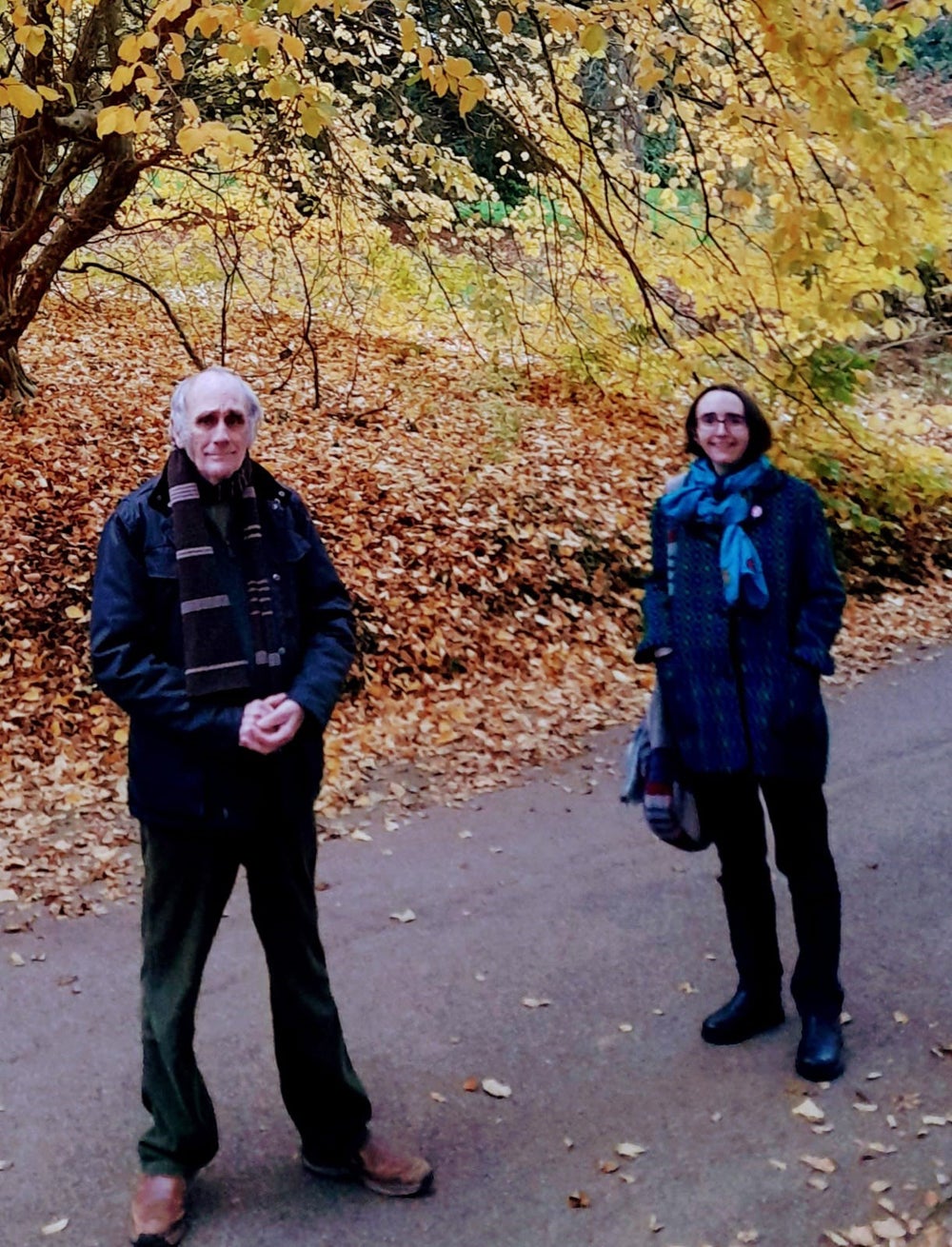
She added: “Other people are talking about what their children are doing with their lives and going off to do their own thing as a couple, but we can’t do any of that.
“We have to take one day at a time. If we start looking too far into the future, it gets horribly scary.
“We need people to be aware that Huntington’s disease destroys people’s lives in so many ways and to push for more research into the gene that causes it.
“If we can start with HD, it could lead to more complex genetic conditions being conquered as well.”
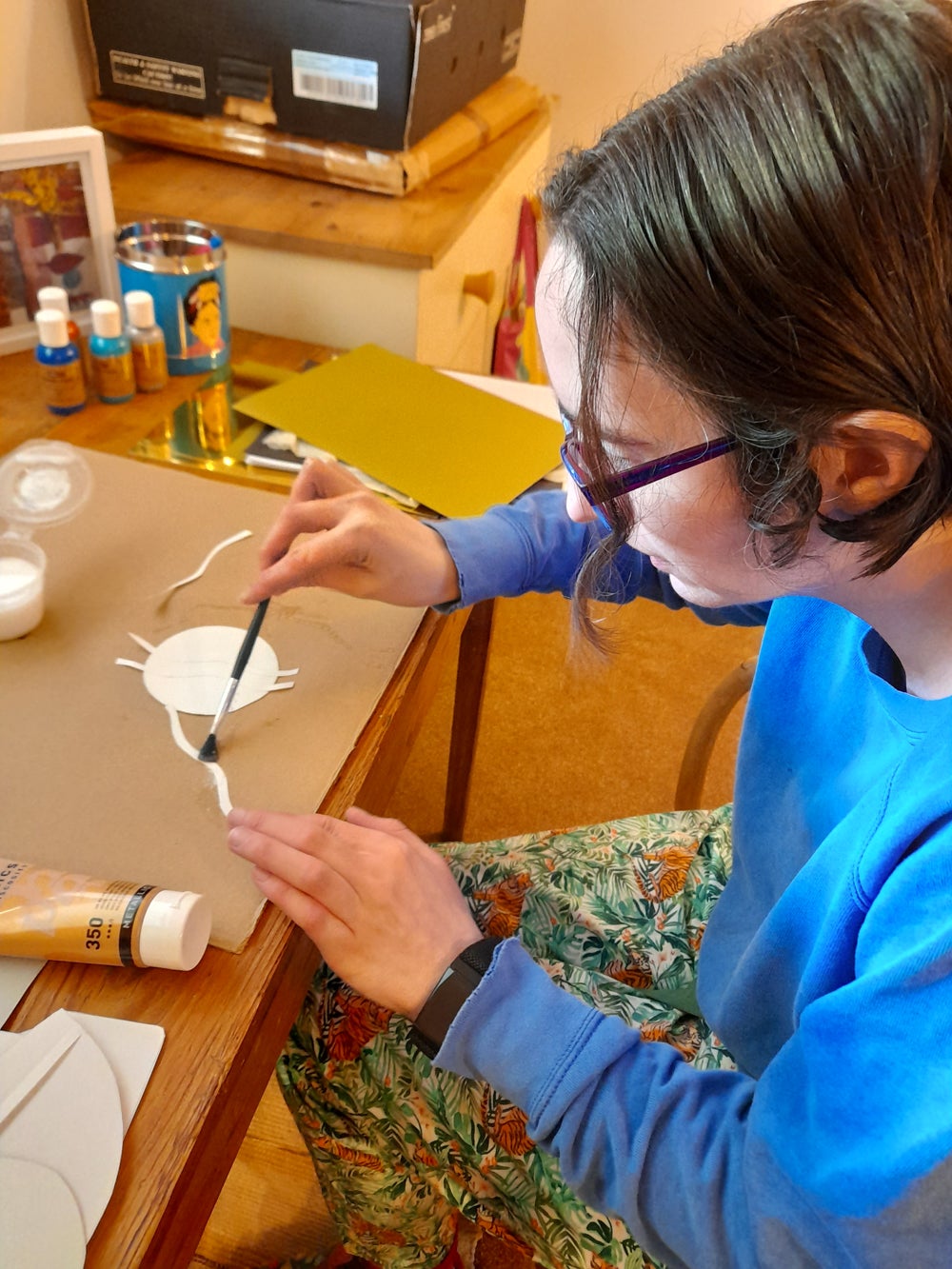
Watching people she loves so wholeheartedly diminish in front of her is extremely difficult for Alison.
She said: “It weighs me down all the time. ”
She could not even face telling her own parents what was happening before her mum suddenly passed away in 2002 and her dad was in his 90s, before he died in 2017.
She said: “I think I was trying to shield myself, because I couldn’t bear to see them upset. It would have made it more real.”
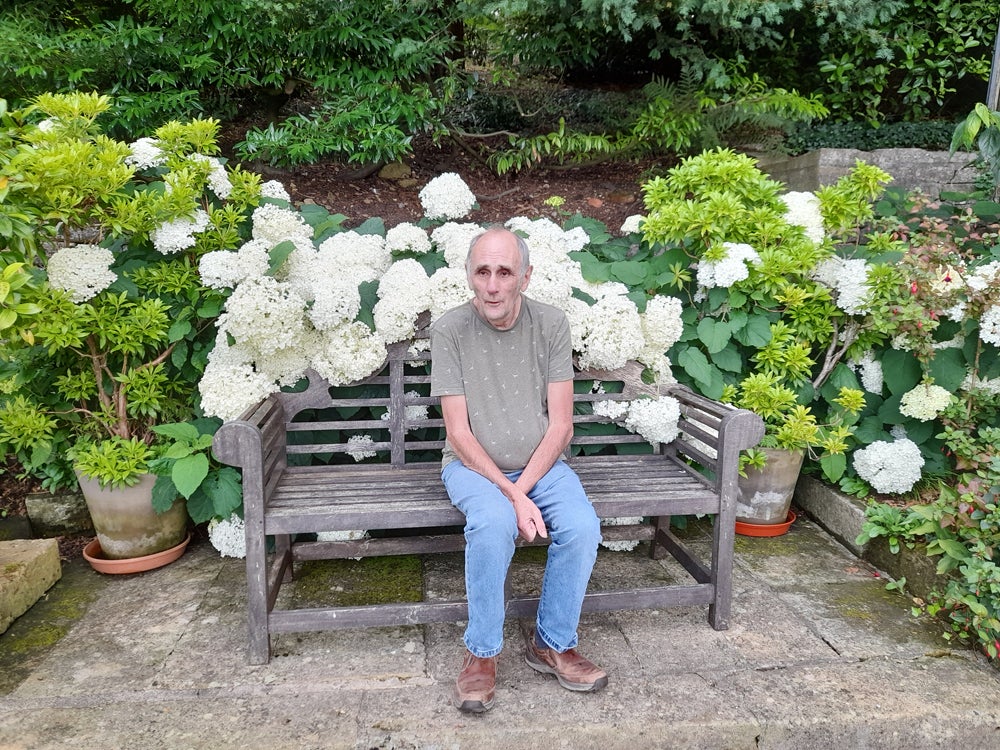
And she and Bert did not tell their children until they began having relationships of their own in their late teens and early 20s.
Alison said: “I just wanted to give them a life growing up without it and then when we needed to tell them, we did.”
A medical breakthrough came in 1993, when the discovery of the gene that causes HD made testing possible, so people could find out if they were carrying it.
But Bert decided to wait until he needed to know.
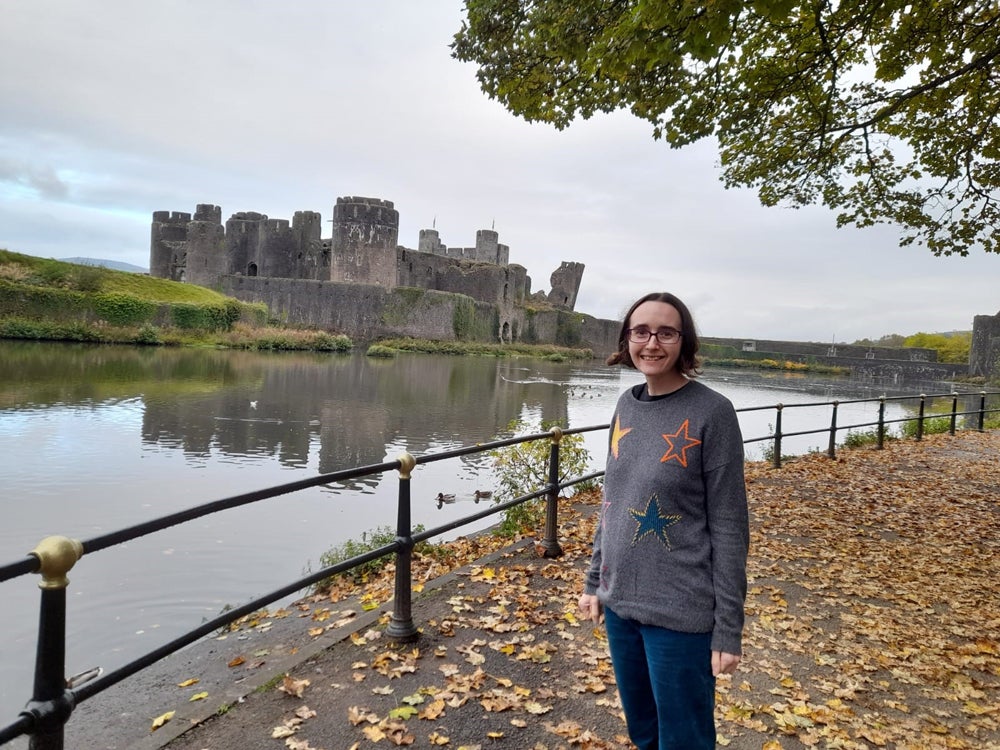
That time came in 2015 when, having retired from teaching to focus on stocks and shares, he decided to be tested.
Alison said: “He hadn’t been enjoying work and was a bit more irritable.
“I couldn’t tell if it was just a midlife crisis, or him getting older.
“Sometimes I’d see him fall or trip and think, ‘Oh God, is this the beginning of it?'”
Looking to the future becomes scary very quickly.
She added: “We were so nervous. I remember sitting in the hospital room, holding hands, and hoping it would all be all right.”
Sadly, Bert’s test came back positive.
“We always knew there was a chance. We just hoped it wouldn’t be the bad result, but it was,” said Alison.
“I thought, ‘We’ve had a lovely life, we can cope with it.’ But, for the children, we were very worried.”
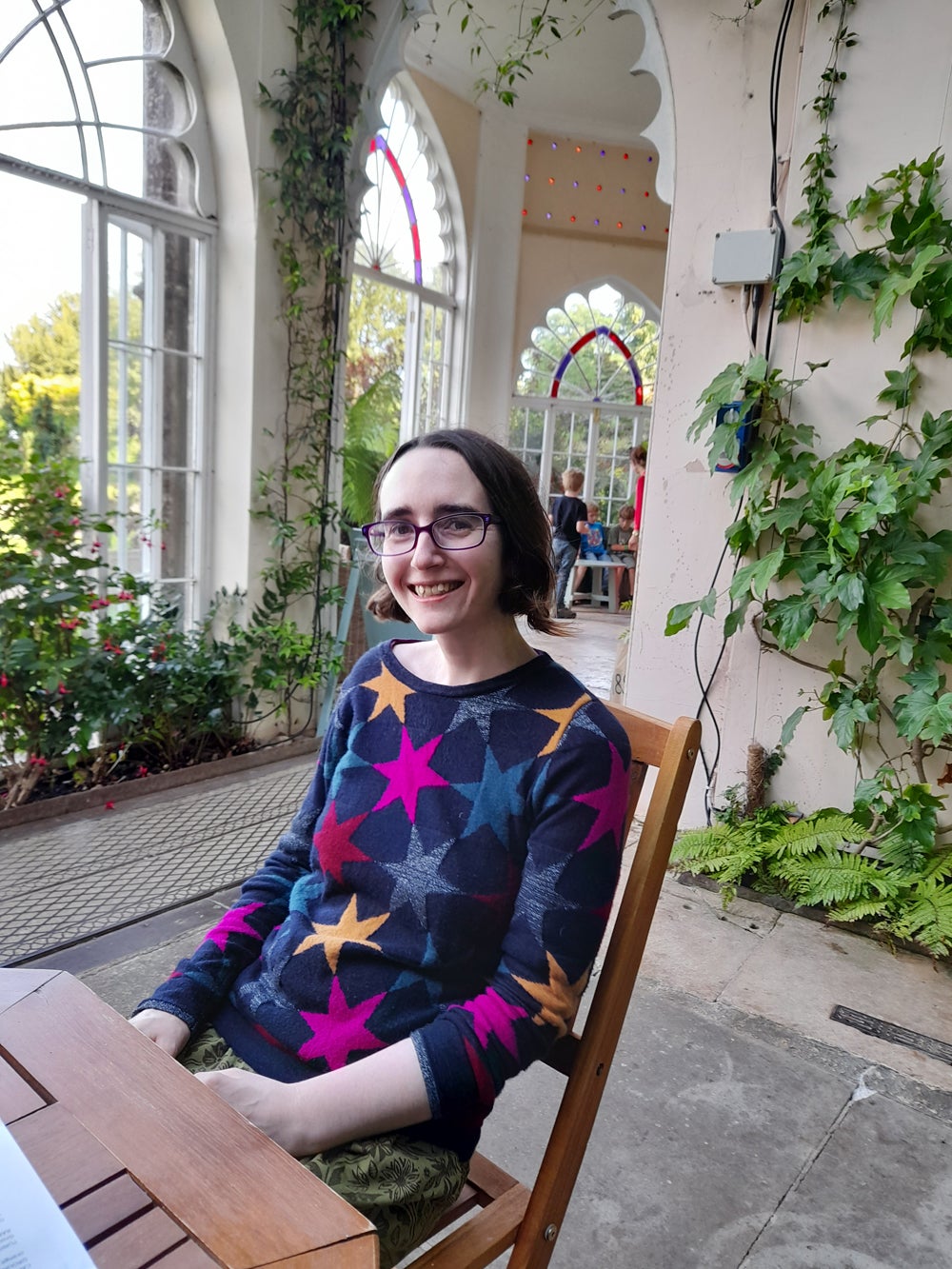
With Bert showing symptoms of the condition at 64, which is quite late, as he became confused and had difficulty walking, it came as a devastating blow when Elise was already displaying signs in her early 30s.
Alison said: “We had a holiday away and Elise wasn’t quite right.
“She had come out of a relationship, so I thought that was why she wasn’t herself, but then I started to see that it could be Huntington’s.”
In 2019, a test confirmed Elise has HD and more recently David, although he remains asymptomatic, has been shown to have the gene.
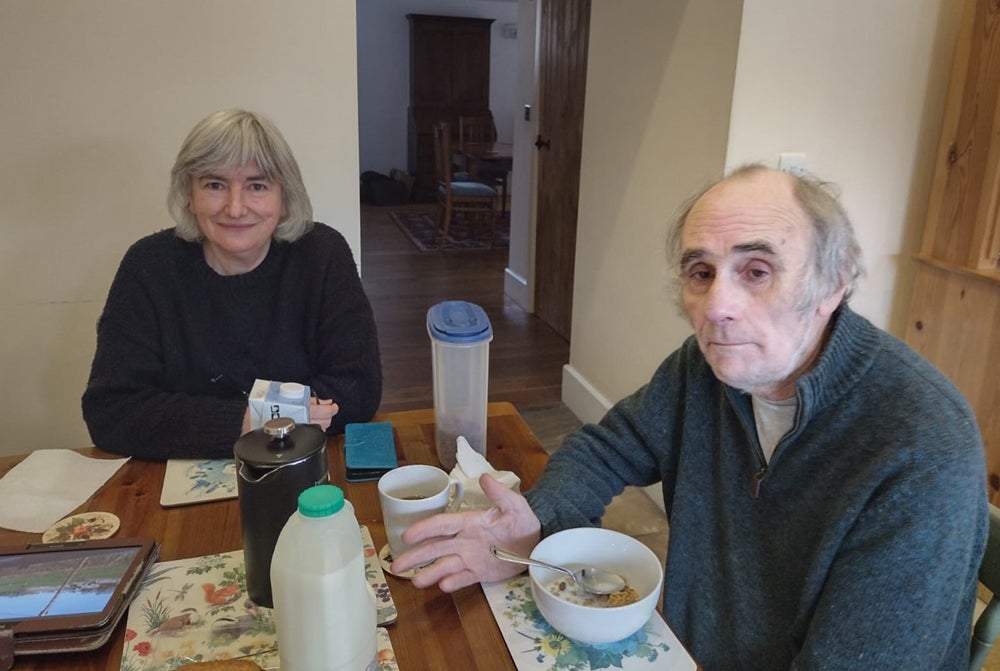
The disease has mostly affected Elise’s finer motor controls, so her hands constantly shake and she finds it hard to swallow, so is restricted to a soft diet.
Bert, meanwhile, struggles with walking and experiences more dramatic mood swings.
Alison said: “He doesn’t have much movement now, so if he walks, he is very slow and you have to be very careful he doesn’t stumble.
“He was so intelligent and even tempered and that is deteriorating now – although he can still beat me sometimes in a quiz in the newspaper.”
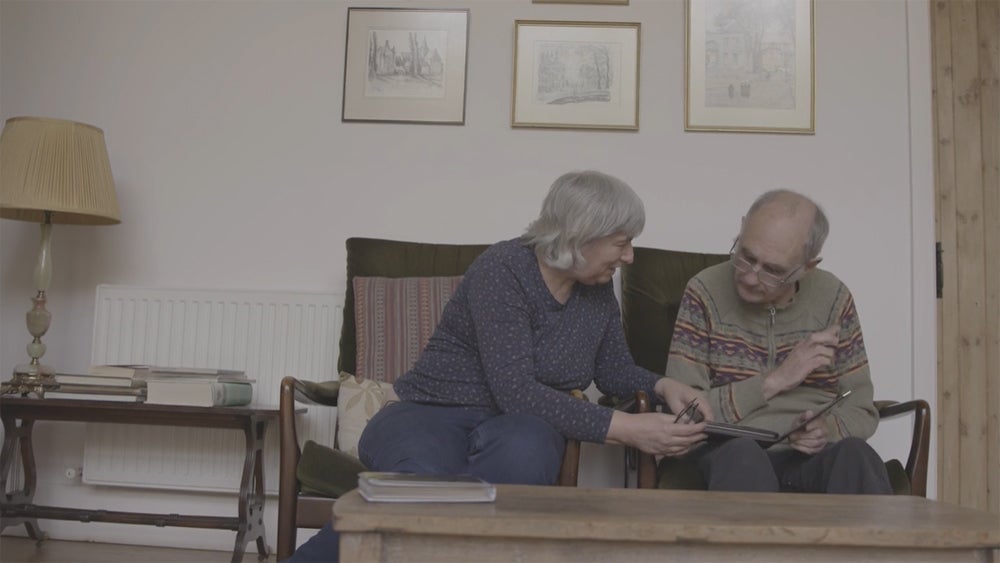
Now retired and living in a barn conversion, Alison spends her days looking after Bert and Elise with support from her “amazing” HD specialist, Carol.
She hopes that her story will help raise awareness of the condition and encourage desperately needed research to coincide with May being Huntington’s Disease Awareness month.
“I want Bert and Elise to stay in our home, so we are trying our best to make it so they can. But there will come a time when I need some help,” said Alison.
“Looking to the future becomes scary very quickly.”
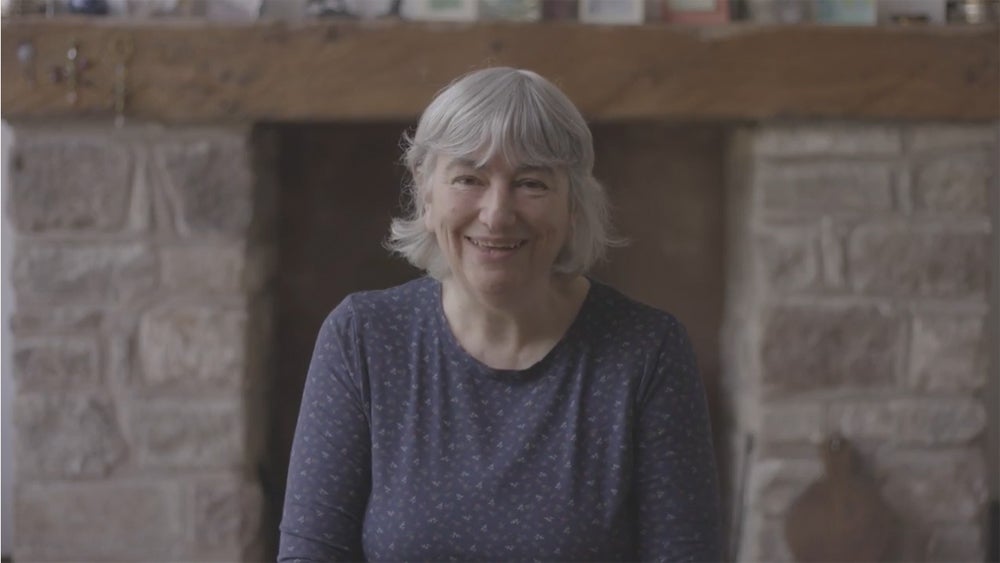
She added: “My motto is that we will keep as well as we can for as long as we can and hope for the best. We just have to hope that the researchers come up with something in time.”
Cath Stanley, Chief Executive of the Huntington’s Disease Association, which has launched a campaign called Huntington’s in Mind, to raise awareness of the mental health issues faced by people with the condition, has stressed the need for more support for sufferers.
She said: “We need to do more to educate health care professionals to recognise and provide the right mental health support at the right time for people living with Huntington’s disease.
“That is why we are determined to raise awareness around particularly the mental health issues associated with the condition, so that those affected feel they are adequately supported.
“The Huntington’s in Mind campaign marks the beginning of a longer journey to ensure equitable access to mental health services.”
Find out more about the campaign on the Huntington’s Disease Association’s website at: https://www.hda.org.uk/huntingtonsinmind







